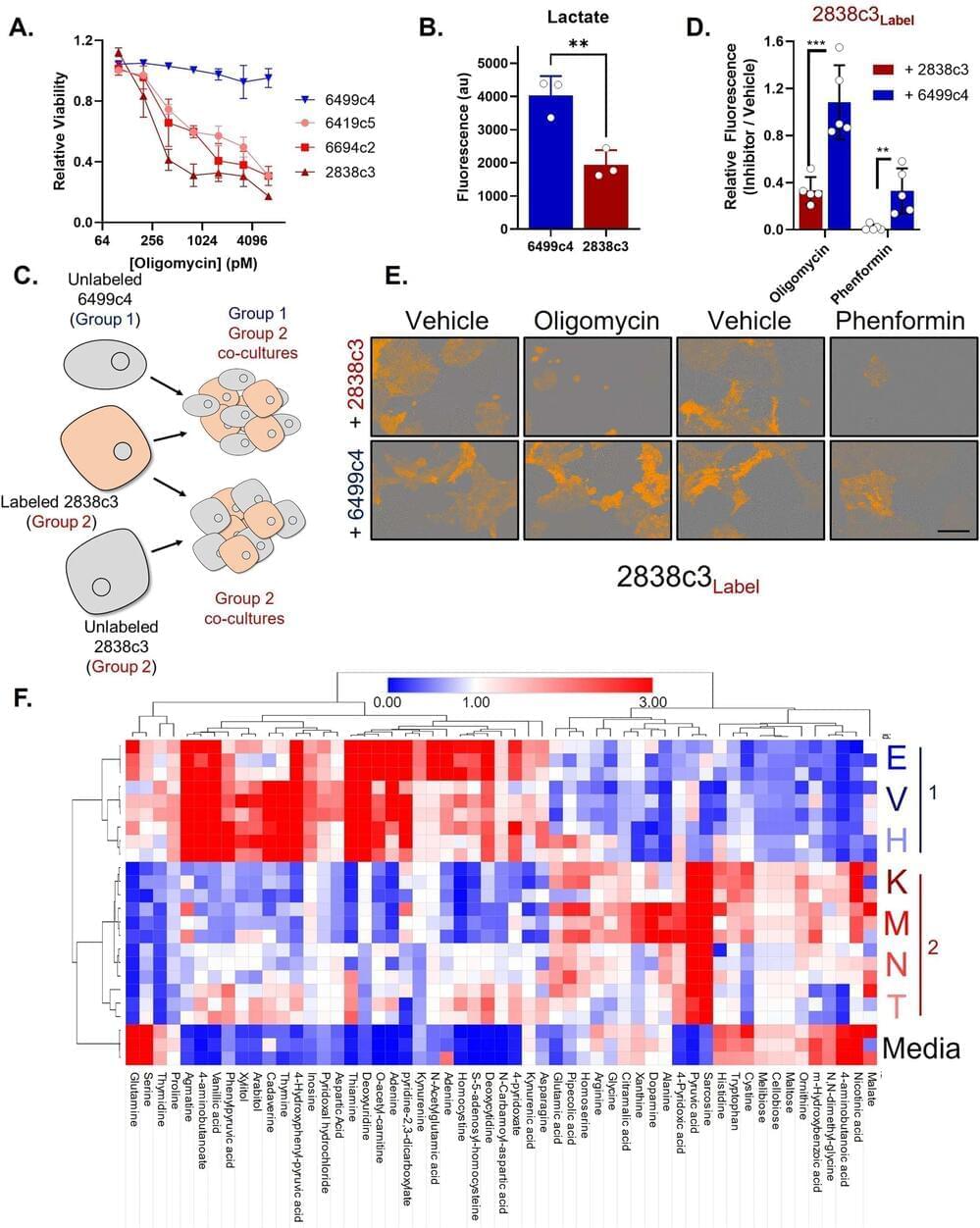Tumor cells in the most common pancreatic cancer share nutrients to live and grow. A new discovery by University of California, Irvine biologists and collaborators during a four-year investigation could help lead to better treatments for pancreatic ductal adenocarcinoma, which accounts for over 90 percent of pancreatic cancer cases. The scientists’ paper appears in Nature Cancer. While pancreatic cancer is relatively rare, it is among the leading causes of cancer death in the United States.
One obstacle in treating pancreatic ductal adenocarcinoma, known as PDA, is that it generally does not show early symptoms. Another hurdle is the complexity of its dense and fibrous tumors. Consequently, they do not have fully functioning blood vessels in the tumor. On one front, this makes it difficult to deliver effective chemotherapy. However, it also means the tumors have developed a different kind of metabolism.
“Without blood vessels, PDA cells aren’t getting the normal nutrients they need, so they have come up with other ways to nourish themselves and grow,” said Christopher Halbrook, assistant professor of molecular biology & biochemistry, and lead and co-corresponding author. Understanding this process is essential for devising treatments targeting the cancer’s metabolism.
